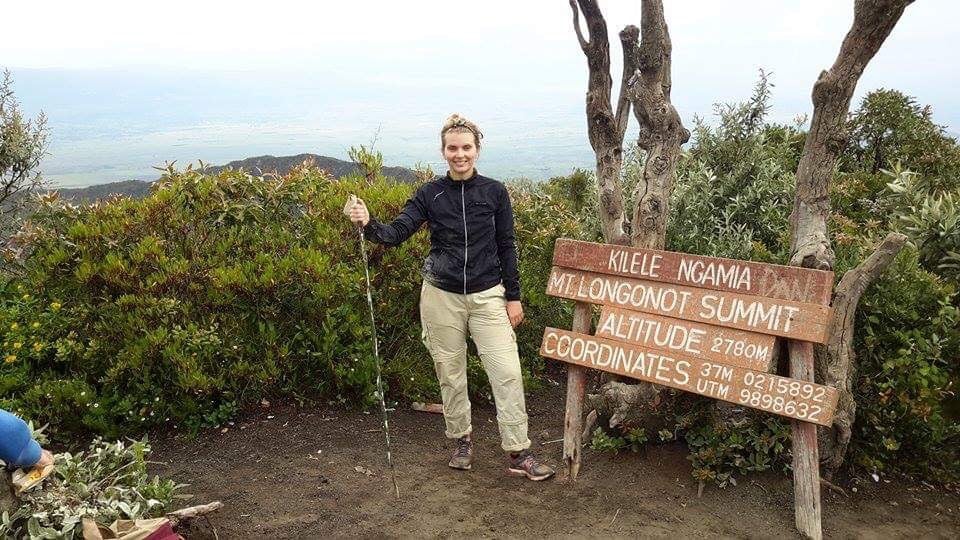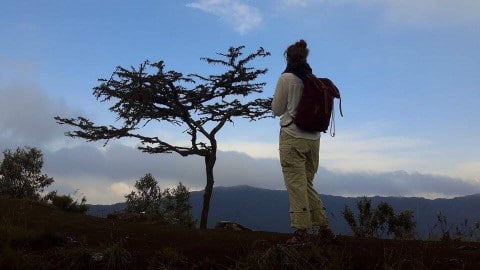This website uses cookies so that we can provide you with the best user experience possible. Cookie information is stored in your browser and performs functions such as recognising you when you return to our website and helping our team to understand which sections of the website you find most interesting and useful.
4C’s Frida Åkerberg-Masori talks international emergency preparedness and building resilience in the public sector

We meet crisis expert Frida Åkerberg-Masori to find out how she’s applying lessons learned from her humanitarian work in the Middle East and Northern Africa to better prepare the public sector against disruptions and threats.
Hi Frida, you have a colourful background in crisis management and humanitarian assistance. Where did it begin?
I started my career at the Swedish Foreign Ministry, working with foreign policy in the Africa department. Much of the focus was on Somalia, Mozambique and the other Portuguese-speaking countries. Political crises had to be managed. I was responsible for preparing notes, speeches, and other related matters for the political leadership. However, I wanted to be more involved with humanitarian assistance and less involved in politics. I wanted to be on the ground when and where things happened, so I left the Ministry for the United Nations.
What was your role at the United Nations?
I was a Humanitarian Assistance Officer based in Kenya with the responsibility for coordinating the Somalian donor groups. Essentially, I was responsible for bringing the different actors together to achieve the best results. It involved a lot travelling back and forth to Somalia to meet the government and our donor partners. It was very much needs-based aid not politics-based. After a couple of years, I joined UNICEF as an Emergency Officer and moved to Amman in Jordan.
What were your responsibilities as an Emergency Officer at UNICEF?
I was in charge of emergency preparedness and disaster risk reduction for the Middle East and North Africa region, which meant developing UNICEF’s internal policies so they could respond quickly to different types of crises, and provide humanitarian aid more efficiently. It was challenging but also very rewarding knowing that what I was doing would have a positive impact on many people. However, when I became pregnant, my husband and I decided it was time to return to Sweden.
And then you joined 4C?
Well, then I had a daughter, was on maternity leave, and then joined 4C as a Project Manager – which was two and a half years ago now. I guess you could say it was a natural path from working with humanitarian aid and crisis management to coming to 4C. My reasons for joining the Foreign Ministry and then the UN in the first place was that I wanted to work with or for people who are doing something that makes a difference, something that matters. I continue to do that at 4C but on a national and local level.

So how are you making a difference in Sweden?
I work mainly in the field of crisis management and emergency/crisis preparedness, supporting Swedish authorities and municipalities. This typically involves reviewing policies, making sure that documentation is up to speed and fit for purpose, as well as holding trainings, exercises and workshops. I can bring my skills from planning for a crisis in a complex humanitarian emergency and apply it here in Sweden. The crisis may be different but there are many similarities in the preparations – there it was a given that crises were going to happen, it was the new normal. Here it’s less so, meaning there are a lot of lessons to be learned. Covid has shown us that major crises do occur when least expected.
Can you give us an example of a project with a similar type of crisis?
Absolutely. We’re currently carrying out an evaluation of the safe provision of water to help a Swedish municipality be better prepared if the water supply lines are disrupted, through contamination or some other form of disruption. In such an event, drinking water must be provided to both the public and critical infrastructure, which is typically done through water trucking. What’s interesting, is that it reminds me of my humanitarian work where we were involved in providing drinking water in a crisis. In those instances, there may actually have been an ongoing armed conflict and a humanitarian crisis. Obviously, the difference here is that it’s a municipality in Sweden where you have a stable environment, but you still have to have the right capabilities, and then there’s the ripple effect. Water disruptions may lead to mistrust in the public or require an emergency evacuation at a hospital. And while handling these situations, you still need to have an effective communication plan and ensure the safe distribution of water throughout the region.
What other projects are you working on right now?
I’m leading a project supporting the Swedish Election Authority making the Swedish election process – which is planned for next year – more robust against antagonistic threats.
Anyhow, these are just two examples of the many ongoing projects at 4C that make a difference and best highlight how my humanitarian experience is being applied at home. And it’s needed, I believe that years of stability in a country mean that society is no longer used to handling a crisis, which makes it all the more difficult when one happens.
We're hiring!
What would you advise someone reading this who says “I want to do that”?
I would say go out there and do it. If you are at the beginning of your career you need to build contacts and networks, so find relevant projects. It could be voluntary work, for example, there’s always a need for capable people. Don’t be afraid to go into the field, where things are happening – that experience is invaluable. And don’t delay, start today.
Finally, when you’re not helping organisations prepare for crises, how do you spend your time?
I spend a lot of time with my family and friends, and I enjoy being out in the countryside. That’s something I missed when I lived abroad, having nature on the doorstep and being able to go for a stroll in it.
